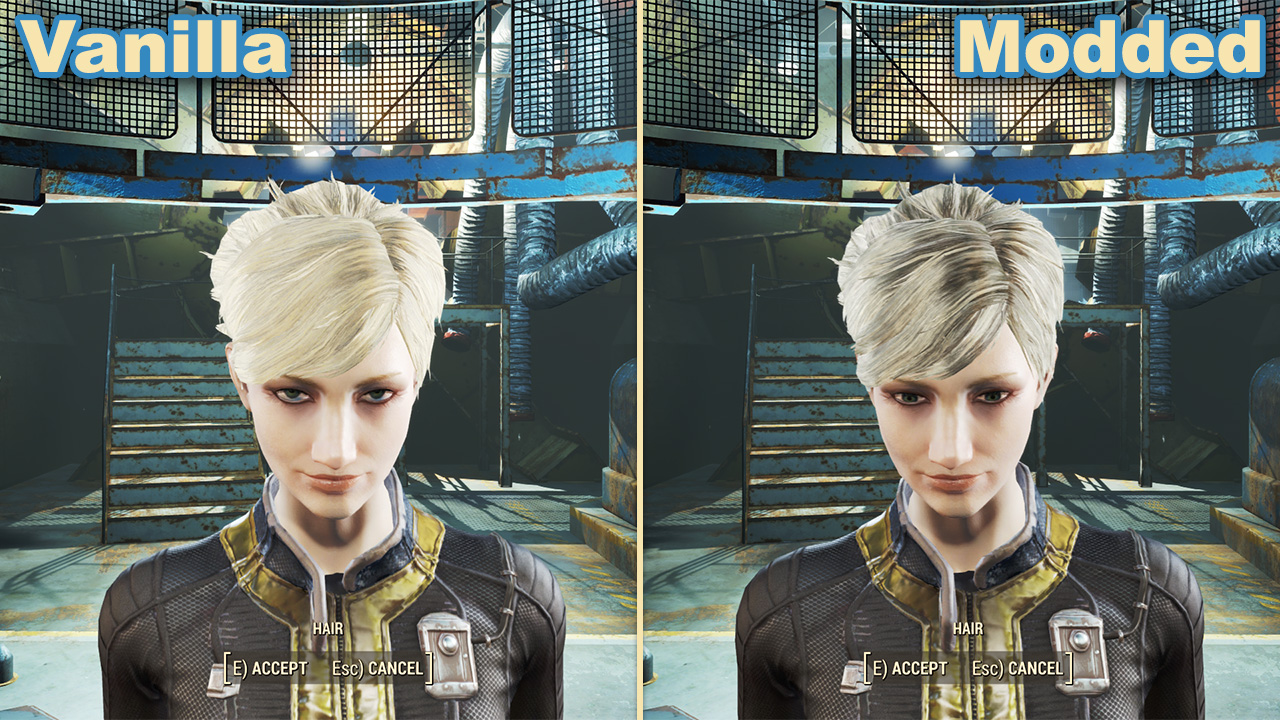Like Skyrim and other Bethesda games before it, modding is one of Fallout 4’s huge draws on the PC. But Fallout 4 and Steam don’t offer an easy, built-in way to install these mods. Thankfully, there’s a tool called Nexus Mod Manager that makes this easier, so you don’t have to do everything by hand. How To Install Fallout 4 Mods On Xbox One And Ps4. Installing mods on consoles is a much more straightforward process. As mentioned previously, you'll first select the 'mods' section in the start menu, and then sign into a Bethesda.net account.
How to install mods for Fallout 4?
Follow this steps to install mods that you like!
1. Installing Mods
Mods come as package -> first you need to extract them to a temporary location by using a tool like 7zip. Examine the files / folders of the Mod you’ve unpacked to get a quick overview.
Example of an unzipped Mod under XP and Vista / Windows7
Mods Fallout 4 Nexus
You’ll find files with ending *.esp or *.esm and maybe additional folders like textures, meshes or sound.
After you unpacked a lot of Mods, you’ll consider each result as quite unique, but generally the structure is almost the same.
Anyway, there are two common rules you should keep in mind:
- All Mods have to be placed into the Data Directory of your Game.
- The folder structure must be correct.

The Data Folder
The default path for DVD Versions is C: Program Files Bethesda Softworks Fallout 4 Data
You may have customised the install path to something else e.g. C: Games Fallout…
That’s why in some READMEs you’ll find the term “< install path > Fallout 4 Data ”
The default path for Steam Versions is C: Program Files Steam steamapps Common Fallout 4 Data
To avoid issues under Vista and Win7, the install location of Steam can be customised, see point #V .29 Installing Fallout
The Folder Structure
Many Mods only contain Plugins, others just Folders – usually you’ll find both.
Files that belong into the Data-Dir
- ESP = Elder Scrolls Plugin => Files with ending *.esp
- ESM = Elder Scrolls Master => Files with ending *.esm

- BSA = Bethesda Softworks Archive => Files with ending *.bsa (seldom part of user created Mods)
Folders that belong into Data-Dir
- existing by default: Music, Shaders, Video
- added by yourself: Textures, Meshes, Sound
Don’t think too complicated, just copy & paste Plugins / Masterfiles and Folders like Textures, Meshes, Sound or Music as they are (with all its content) into the Data Folder.
If Windows tells you that such a folder already exists, overwrite.
2. To get Mods working
Many Mods (e.g. Body Replacer, Weapon Mod Kits, Armor Mods, etc) require something which is called “ArchiveInvalidation”. This is the process to recognise certain new files which have been placed into the Data folder.
-> It’s recommended to use the little tool ArchiveInvalidation Invalidated.
-> Unzip, run it, activate it
The whole Archive Invalidation will be done.
If you use another Method such as provided by FOMM or if you want to use your own customised ArchiveInvalidation.txt file
instead of AI-Invalidated, make sure that bInvalidateOlderFiles=0 is set to 1 in your Fallout.ini found in:
Windows-Start-Menu Documents My Games Fallout4
Finally check your G.E.C.K. Mods (*.esp) at your Fallout Launcher or use FOMM
Finished, Enjoy Fallout 4!
Archive
- Please Insert The Original Stronghold 2 Deluxe Cd/dvd.
- Types Of Material Testgin
- Dark Souls 2 Coop Spielen
- Ushe Moodidaga Song Download
- Cara Menggunakan Cheat Yu Gi Oh Forbidden Memories Pc
- Realtek Pcie Fe Family Controller
- Ck2 How To Become Caliph
- Bigasoft Total Video Converter
- How To Open Car Trunk
- Nico Kazantzaki Cristo De Nuevo Crucificado
- Arena Quest Monster Hunter World
- Alien Shooter 3 Game Download For Pc
- Call Of Duty Black Ops 2 Theme Songs
- How To Screenshot On Windows
- City Skylines Essential Mods
- Windows 7 Home Basic Tema Indir
- Coldplay Flac Google Drive
- How To Run A Boot Scan With Avast
- Tp-link Tl-wn620g Windows 7
- Microsoft Office For Military